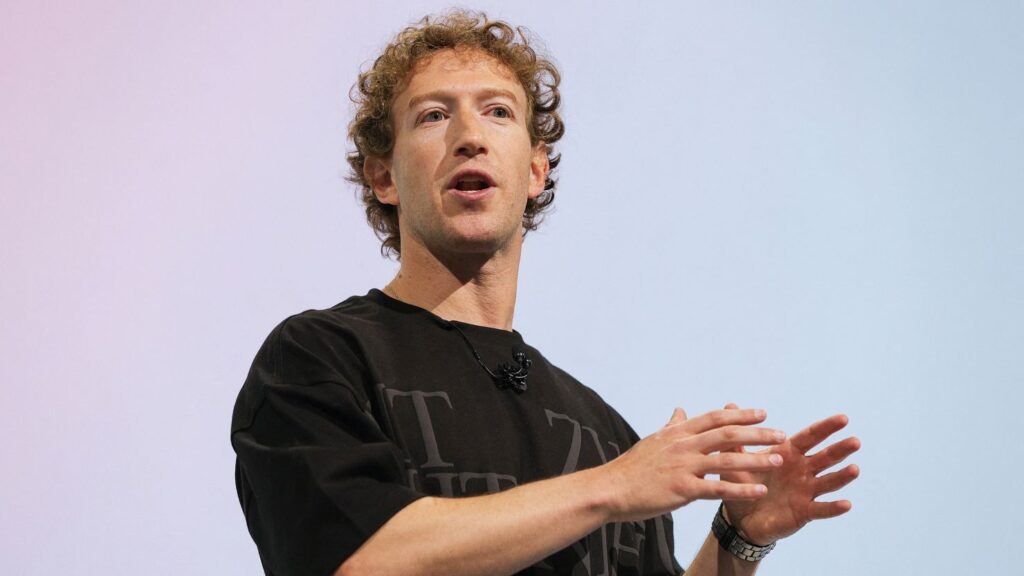In 2024, Mark Zuckerberg made one of the boldest moves of his career by doubling down on artificial intelligence for Meta. The tech giant, once known primarily for Facebook, has been transitioning into a leader in the world of AI and social media. Zuckerberg’s decision to invest heavily in AI reflects a shift in Meta’s strategy: to blend advanced technology with human-centered services that will shape how we interact online.
Meta’s AI strategy isn’t just about improving existing features; it’s about completely transforming how users engage with its platforms. From improving personalized recommendations to developing more sophisticated content moderation tools, Meta is pushing the boundaries of what AI can do within social media.
Meta’s 2024 AI Vision: Revolutionizing Social Media with Artificial Intelligence
At the core of Meta’s 2024 AI vision is the idea that artificial intelligence will enhance every facet of the platform. For instance, AI-powered algorithms will help Meta refine its content delivery system, ensuring users see more of what interests them. Beyond content personalization, Zuckerberg’s AI focus is also on developing immersive technologies like augmented reality (AR) and virtual reality (VR) that are powered by machine learning models.
These changes are aimed at creating a more engaging and dynamic user experience. Meta’s AI innovations will allow for smarter interactions on Facebook, Instagram, and WhatsApp, all integrated with the metaverse, Meta’s vision of a virtual, interconnected world.
The Growing Pressure for Zuckerberg’s AI Strategy in 2025
While Meta’s AI strategy in 2024 is ambitious, Mark Zuckerberg will face significant challenges as he approaches 2025. The pressure on Meta to deliver tangible results from AI investments is increasing. As AI becomes more integrated into everyday services, the tech world will scrutinize Meta’s ability to meet expectations. Success means new growth opportunities, but failure could mean setbacks in Meta’s efforts to regain user trust and maintain relevance in a competitive market.
For Meta’s AI strategy to succeed, Zuckerberg needs to demonstrate that AI can address not only user engagement but also the ethical and practical concerns of artificial intelligence. These concerns include issues like data privacy, algorithmic transparency, and the potential for AI to reinforce harmful biases. Meta’s ability to manage these risks while pushing the envelope on AI innovation will determine whether it can maintain its market position in 2025.
How Meta’s AI Strategy Could Impact the Future of Social Media
Meta’s AI strategy is poised to reshape the entire landscape of social media. By integrating AI into various facets of its platforms, Meta hopes to enhance content moderation, improve user engagement, and create a more personalized online experience.
In particular, AI’s role in content moderation could prove pivotal. With the rise of harmful content and misinformation, AI could play a critical role in moderating harmful posts more effectively than human teams alone. As Zuckerberg envisions, AI will be a tool to not only improve the user experience but also keep Meta’s platforms safe and engaging.
Furthermore, as Meta continues to invest in metaverse technologies, AI will become a key component in developing immersive virtual worlds. Whether through improving virtual interactions or creating realistic avatars, AI is essential for making the metaverse an interactive and engaging space.
Challenges Ahead: The Road to Meta’s AI Future in 2025
Despite the bold steps Zuckerberg is taking, Meta faces a critical challenge as it transitions to an AI-first company. The road to 2025 is filled with uncertainty. For instance, the cost of AI research and development is immense. Meta will need to balance the financial strain with the expectation that its AI innovations will eventually drive profits.
Furthermore, AI development often faces setbacks in its early stages. Whether it’s dealing with algorithmic errors or public backlash over privacy concerns, Zuckerberg will have to navigate these obstacles while keeping the company on track to meet the ambitious goals set for 2025.
